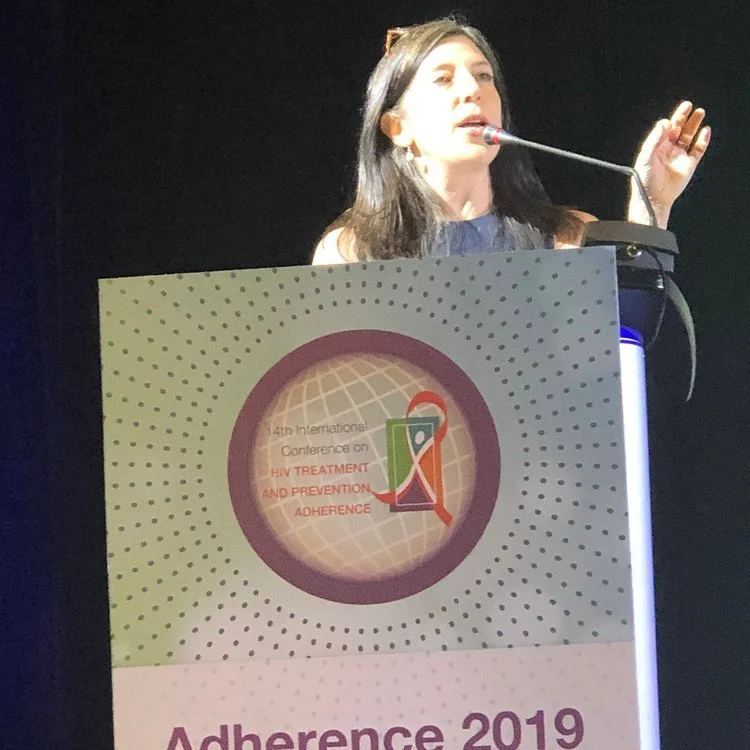Stigma and resilience
Our work is informed by both classic theories of social stigma (e.g., Goffman, 1963; Link & Phelan, 2001) and applied models of the ways in which stigma may “get under the skin” (Meyer, 1995; Clark et al., 1999; Hatzenbuehler, 2009). We study the antecedents and consequences of stigma at the individual and community levels, but we pay particular attention to the structural and behavioral factors that create and reinforce stigma within the health care and education systems. We also focus on the ways in which individuals overcome stigma and other forms of adversity. Our work studies the conditions under which stigma can best be reduced and the resources people need to build resilience in themselves and each other.
Funded Research Projects
Trauma-Informed Investigation of TGNBI Experiences in HIV Stigma Research
Funded by the National Institutes of Health (NIMH) | R21MH131477 (Sarit Golub/Augustus Klein, MPI)
July 2022- June 2024
This project is designed to address a critical gap in existing HIV stigma research with transgender and non-binary individuals (TGNBI) by examining experiences of stigma within the research context and identifying strategies for improving data quality and reducing unintentional harm in study recruitment, methodology, and/or implementation. Led by a majority trans-identity research team, our project is designed to answer the following research questions: (1) What are TGNB participants’ experiences of stigma research and which aspects do they experience as more/less stigmatizing? (2) What strategies do TGNBI recommend to reduce the experience of stigma in recruitment, survey measures and design, framing? (3) What strategies are HIV stigma researchers already using to mitigate against re-stigmatization? How feasible are the recommendations from participants? What barriers or other challenges might they raise? What strategies can we use to overcome them? (4) How do mental health professionals evaluate these recommendations from participants and strategies of researchers? What are their recommendations for improving person-centered, trauma-informed, and actively de-stigmatizing practice? And (5) How can we reconcile these different opinions into a set of ethical, practical, and tactical recommendations?
Impact spotlights – how our research is making a difference
Messaging
Much of HART’s work focuses on changing the language used to describe health conditions and behavior in a way that does not stigmatize individuals or communities. In 2022, Dr. Golub was asked to contribute to several initiatives focused on the new MPV outbreak. Dr. Golub spoke at a webinar convened by the New York City Pandemic Response Institute, moderated a panel at the Roosevelt House Public Policy Institute, and delivered a keynote about choosing anti-stigma language at the North American Anti-Stigma & Discrimination Forum.
client-provider interaction
In honor of World AIDS Day (December 1, 2022), the National Institutes of Drug Abuse (NIDA) created a video series, entitled: “At the Intersection: Stories of Research, Compassion, and HIV Services for People Who Use Drugs.” These videos explore NIDA-supported research and provide insight on how researchers and health professionals can better serve all people who use drugs in the context of their sexual health. Dr. Golub’s research and perspective is featured in both videos, with particular attention to her work on reducing stigma in the language we use with clients and the ways in which we structure the psychological experience of receiving prevention and care.
service organization & delivery
In 2022, the International AIDS Society published a special issue that aimed to draw attention to HIV-related and intersecting stigma and discrimination and provide a state-of-the field update about the latest concepts, innovative research methods and strategies to reduce stigma and/or ameliorate its harmful effects. Together with Dr. Rachel Fisklin (BASP PhD ‘22), Dr. Golub wrote a piece entitled, Recognizing and disrupting stigma in implementation of HIV prevention and care: a call to research and action. This commentary is a theory-informed call to action for the assessment of existing HIV service implementation, for the development of new stigma-reducing implementation strategies and for the explicit inclusion of stigma reduction as a core outcome in implementation research and evaluation.



